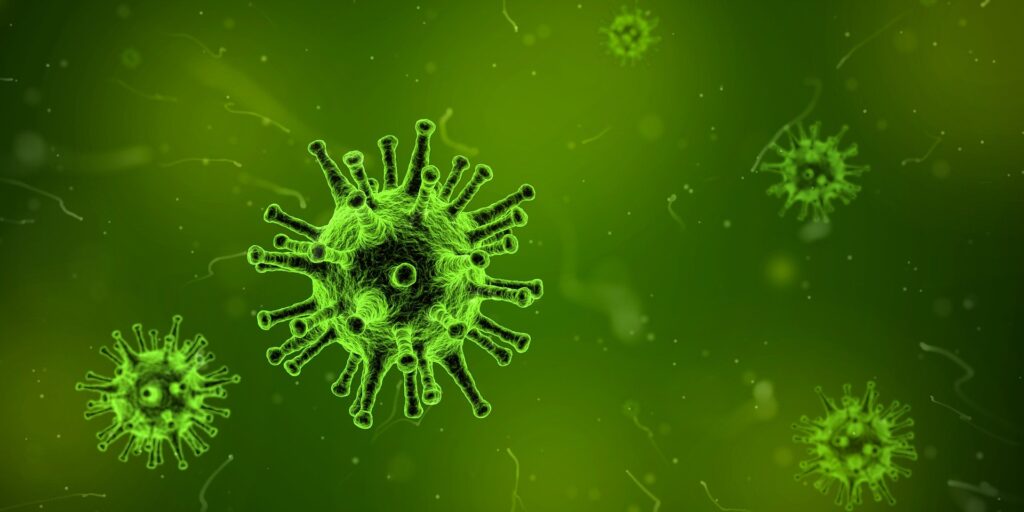In accordance with the emergency scenario, several of our large corporate customers have taken precautions to mitigate the spread of the coronavirus. These typically include instructions such as increasing home-based work rather than on-site work, travel bans, increased hygiene requirements, or even restrictions on outside events.

In this article, we suggest how we can preserve the agile core values by adopting these necessary precautions. Can we realistically see the current situation as an exercise in resilience? Can we preserve our hard-earned psychological security in difficult circumstances? Can the scrum master support the team's work in a meaningful way in such an environment?
Who is a scrum master?
Before writing about practical advice, let's start with a little role definition. In our trainings and in our consulting and coaching work, we have noticed that there are still big misunderstandings about the role of scrum master. There is often confusion between the classic roles of project manager, agile coach, line manager.
As we have written before, a scrum master is a team-supporting servant-leader whose primary task, besides removing obstacles, is to support the team by facilitating, teaching, coaching, or mentoring. It is a bit of an exaggeration to say that the scrum master is also the team's psychologist, who, if functioning properly, can create significant value for the team and therefore for the client.
A scrum master does not tell the team what to do, he or she tries to help the team make decisions, define the right way of working, increase the efficiency of collaboration and delivery, and protect the team from external or internal negative influences.
What does the coronavirus have to do with scrum master?
The current actions and conditions described above can also be seen as a kind of obstacle, so the scrum master should consider a number of tasks that were not previously or not typical in the normal daily operation.
What are these tasks?
These can concern the support of the psychological balance of the team and cooperation (so-called "soft" topics), or even working methods, specific tasks, ceremonies, concrete tasks ("hard" topics).
So what can we do as scrum masters in this situation?
1. In the next retrospective, it is worth keeping on the agenda any corporate "hard measures" that are external to the team (e.g. corporate directive) and supplementing them with "soft" measures that are specific to the internal functioning of the team and that increase safety. Examples include:
- What precautions should be taken to increase the team's sense of security?
- What preparations should be made to allow participation in external hearings and stakeholder meetings?
- Is it possible to arrange car-pooling (carpooling) of the team to and from work?
- Are there any employees who are particularly vulnerable and how can we make common rules to better protect them? (immune system diseases, blood pressure disorders, possibly pregnancy-related rules)
- What cooperation rules should apply to team members in the event of an unexpected and permanent home-office?
- Are there technical obstacles to frequent video conferencing, even several times a day?
- Is there a place in the war-room (shared team airspace) where these calls can be easily made?
2. What does the much talked about "social distancing" mean in terms of team ceremonies and cooperation and day-to-day operations? Can someone be quarantined by company rule or voluntarily? How do we handle this situation? In what cases do we expect voluntary quarantine? How do we facilitate its realistic application?
3. it is worth thinking together about the need for team-specific hygiene rules, such as ventilation arrangements, hygiene procedures, keeping equipment clean, cleaning and disinfecting any designated common equipment, all of which can contribute to increasing our perceived safety. Is it possible for a team to use a toilet exclusively?
4. To lighten the mood, we can devise games during the day to promote compliance with hygiene rules, but also to reduce the sense of panic that can be generated by inadequate corporate communication. This could be, for example, poking each other in the face or eyes, or turning an instinctive gesture into a playful punishment when "busting" each other (1 eye rub = 1 push-up)

5. A major instruction can severely limit or inhibit the availability of stakeholders. If the team feels that the velocity of delivery is affected, arrange a meeting with the Product Owner to review the release plan and modify it if necessary.
6. Review with the team the operational arrangements for the ceremonies currently in place, if necessary redefine the whole way-of-work (e.g. review process, number of review participants, location, etc.).
7. Remote accesses should be reconsidered (what capacity increase is needed on hardware, bandwidth side to be able to use them properly).
8. Should we change the rules on remote working? Is it suitable to really support team collaboration?
Of course, our description does not only apply to the time of a coronavirus, but can be used in any situation where actions such as the present one are necessary.ges.
We believe that this kind of transparency can reduce our fears and will have the opposite effect. If we pay attention to applying the above points in the right, calm tone, the safety of the team will increase. As we act to maximise collective safety, the strength of cooperation and respect in the team is further enhanced.
The post was written by Szabolcs Mizsei, agile coach partner and Zsolt Czimbalmos, managing director, senior consultant.

 Designabc
Designabc